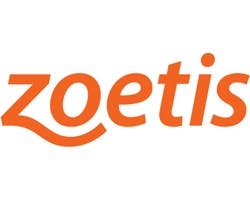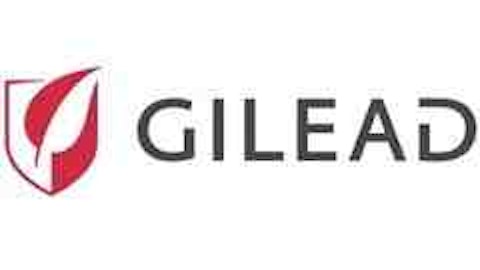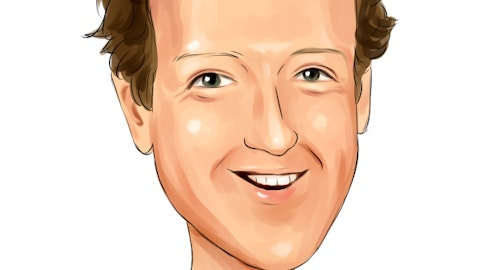In an attempt to further simplify its business and unlock shareholder value, Pfizer Inc. (NYSE:PFE) has been busy divesting itself of non-core assets. Last year, that involved the sale of its infant nutrition business to Nestle. And earlier this year, that simplification process led to Pfizer spinning off its animal health care division into a separate company called Zoetis Inc (NYSE:ZTS). In the largest IPO since Facebook Inc (NASDAQ:FB), Pfizer Inc. (NYSE:PFE) and Zoetis highlighted to the public the many reasons why the animal health care industry can make for a great long-term investment opportunity.

Reason #1: The $100 billion global market.
Animal health is not some tiny, inconsequential health care niche. Keeping pets and farm animals healthy is big business. According to the research and consulting firm Vetnosis, the global animal health care market is worth between $92 billion and $102 billion. Within that overall animal health care industry, the market for animal medicines and vaccines alone is estimated at $22 billion globally.
It is that medicine and vaccine market that Zoetis Inc (NYSE:ZTS) and other pharmaceutical companies operate in. Zoetis, the market’s only major pure play, is the world’s largest animal health care company, commanding nearly 20% of the market share based on 2012 sales. Although the largest, Zoetis is not without major competitors from the diversified drug makers. Merck & Co., Inc. (NYSE:MRK)‘s Animal Health division has the distinction of being the world’s second largest, with a market share of about 15.5%. And let’s not forget about the Paris-based Sanofi SA (ADR) (NYSE:SNY) and its animal health division, Merial, which comes in with about 13% of the global market. With just under half of the total worldwide market between themselves, these three are certainly the companies to watch.
Reason #2: Helping to feed the world.
According to the United Nations, it is projected that the Earth’s population will grow to 9.15 billion people by 2050. That is a lot of hungry mouths to feed. Most of that population growth will occur in the emerging market countries, where diets are becoming increasingly westernized. And by westernized, I mean more protein (milk, cheese, beef, pork, chicken, lamb, fish, eggs and the like).
Animal health companies are well positioned to address this growing emerging market demand for higher-protein diets. Zoetis Inc (NYSE:ZTS)’ top-selling Ceftiofur, for example, helps to protect livestock herds with a line of broad-spectrum antibiotics for cattle, pigs, and sheep. Merck & Co., Inc. (NYSE:MRK) contributes to the cause with Estrumate, a treatment for cattle fertility disorders. And then there is Sanofi SA (ADR) (NYSE:SNY)’s Ivomec, which is used to control internal and external parasites. These and other drugs help to keep animals healthy, which gives all of us access to affordable and delicious animal-based food products.
Reason #3: The love for our pets.
In a recent study published by researchers at Georgia Regents University, participants were asked a hypothetical question about who they would rather save if they could only choose one: a foreign tourist or their pet dog. About 40% answered that they would save their beloved pet. And when asked a similar question substituting “foreign tourist” for “immediate blood relative,” amazingly 2% answered that they would choose to save their dogs over their own family members. Wow.
Ignoring for a second the obvious misplaced priorities of some (particularly that 2%), this study makes one thing crystal clear: People really love their pets. Pet owners treat their furry companions like members of the family. And as with any family member, you would do just about anything to keep them safe, happy, fed, and healthy. It is for that reason that in the United States alone, Americans spent more than $53 billion on food, pet supplies, over-the-counter and prescription medications, veterinary care, live animal purchases, and other pet-related services.
Not even a recession can stop Americans from spending big on their pets. In 2007, at the beginning of the Great Recession, U.S. pet expenditures reached an all-time high of $41.2 billion. At least it was an all-time high until 2008, when spending climbed to $43.2 billion — and again in 2009 with another all-time high of $45.5 billion! Since at least 1994, every single subsequent year has been a new all-time high for U.S. pet spending. If you are looking for a recession-proof industry, I think you may found it.
Reason #4: A healthy animal means healthy human.
According to the Centers for Disease Control and Prevention, about 60% of all human pathogens are zoonotic — diseases transmitted from one species to another (animal to human, in this case). Animal to human zoonotic diseases of note include viruses like swine flu and avian flu, prions such as mad cow disease, as well as bacterial, parasitic, and fungal infections.
Whether it is directly from proximity to living animals or indirectly through the food we eat, we are in constant contact with animals of all types. In turn, making sure animals are healthy ensures that we humans stay healthy.
Nowhere is that more true than in China. In recent years, China seemingly has had countless food supply scares and disease outbreaks of animal origin (chicken, pig, dairy cattle, beef cattle, sheep… the list could go on and on). There are many in the international scientific and medical communities who fear that the next major global outbreak could be a zoonotic one with origins in China. Continued animal health safety concerns in China and elsewhere in the world are likely to present animal health care companies with substantial growth opportunities in the future, being one of the few entities able to address this potentially very scary issue.
Reason #5: R&D, patent expiration, generic competition, and upfront payment.
Unlike human drugs, which require years of numerous and extremely costly drug trials to receive approval, the requirements for animal drug approval is far less demanding. Trials are fewer, research and development costs are much cheaper, and approval is comparatively much more likely. For animal health care companies, the pathway from initial drug discovery to eventual commercialization can be fairly straightforward.
And unlike human pharmaceutical companies, expiring drug patents are not as frightening of an occurrence for the animal health care industry. Take Merck & Co., Inc. (NYSE:MRK)’s blockbuster asthma and allergy treatment Singulair as an example, which did about $3.9 billion in sales in 2012. By the end of 2012, however, the company’s blockbuster drug patent had expired, and competitors were quick to introduce their own cheaper generic alternatives. When it came time for Merck to report its second-quarter 2013 earnings, year-over-year sales for Singulair had fallen about 80% from $1.4 billion to $281 million. Ouch.
While patent expiration and generic competition exists in the animal health care industry, the effect it has on companies is nowhere near as negative. That is because there are not as many companies itching to become makers of generic animal medications. One reason for this is the lack of a blockbuster equivalent to Singulair in the animal health care industry. With no $4 billion a year animal health care drug ever coming off patent, there is no obvious lure to catch the attention of any would-be generic competitors. Instead of a few multibillion-dollar blockbuster drugs driving sales, animal health care companies have hundreds of smaller drugs each contributing a small percentage of company total sales.
Another reason is that most animal health care customers (both pet and livestock) do not have animal health insurance. The costs of animal medications are instead paid 100% upfront and out of pocket, with no animal health insurance companies to tell veterinarians to prescribe the cheaper generic alternative. And since customers are responsible for all of the costs, it allows for customers to develop a strong loyalty for a specific brand name they trust (much more so than in human prescription meds). Would you as a pet owner rather trust your dog’s health to Sanofi SA (ADR) (NYSE:SNY)’s top selling Frontline flea and tick treatment or to some random generic brand you’ve never heard of? If we refer back to the study about dog owners, foreign tourists, and immediate blood relatives, I think we all know the answer to that question.
Foolish bottom line
Today, there is only one major pure play available to investors in this space. And currently Merck & Co., Inc. (NYSE:MRK)’s and Sanofi SA (ADR) (NYSE:SNY)’s management have made zero indication that they are planning on separating their own animal health business. All of that, however, could change very quickly depending on the future successes of Zoetis Inc (NYSE:ZTS). If the Zoetis pure play is able to capitalize on the growing megatrends in animal health, we could very well see a slew of big pharma companies making plans to create their own pure-play animal health care companies. And with the overall stock market’s recent love of spinoffs, it seems like it really is only a matter of time.
The article 5 Reasons to Invest in Animal Health originally appeared on Fool.com and is written by Matthew Luke.
Matthew Luke owns shares of Zoetis. The Motley Fool recommends Facebook. The Motley Fool owns shares of Facebook.
Copyright © 1995 – 2013 The Motley Fool, LLC. All rights reserved. The Motley Fool has a disclosure policy.




